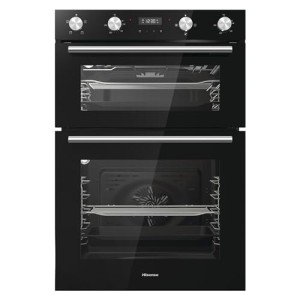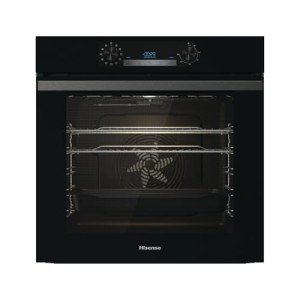You'll Be Unable To Guess Built In Oven's Secrets
페이지 정보
본문
The Comprehensive Guide to Built-In Ovens
Intro
Built-in ovens are a staple in modern cooking areas, combining sophistication with performance. They use a streamlined visual and effective cooking abilities, making them a favored choice for house owners and culinary lovers alike. This article digs into the advantages of built-in ovens, their different types, crucial functions to think about, setup pointers, and maintenance advice, along with frequently asked concerns.

Advantages of Built-In Ovens
Built-in ovens featured a range of benefits that contribute to their popularity. Here are some crucial benefits:
- Space-Saving Design: Built-in ovens are designed to fit seamlessly into cabinets, permitting a more organized and space-efficient kitchen design.
- Aesthetic Appeal: They offer a smooth and contemporary appearance that can boost the overall style of the kitchen.
- Enhanced Functionality: Built in ovens electric-in ovens often include advanced features and innovations that support various cooking methods.
- Boosted Cooking Experience: Many built-in models consist of self-cleaning functions, temperature level probes, and programmable settings, enhancing the cooking experience.
- Increased Property Value: A well-designed kitchen with Built In Oven-in appliances can boost the worth of a home.
Types of Built-In Ovens
Built-in ovens come in several types, each designed to fulfill various cooking preferences and needs. Here are the primary types:
| Type of Built-In Oven | Description |
|---|---|
| Single Oven | A single, standalone oven for conventional baking and roasting. |
| Double Oven | Combines two ovens in one system, enabling numerous dishes to cook at various temperature levels. |
| Wall Oven | Installed in the wall, freeing up counter area, perfect for small kitchen areas. |
| Convection Oven | Utilizes fans to distribute hot air for even cooking, boosting the results of baked items. |
| Steam Oven | Makes use of steam for much healthier cooking alternatives, maintaining nutrients in food. |
Secret Features to Consider
When choosing a built-in oven, several features can affect performance and functionality. Here are some necessary functions to remember:
Cooking Modes
- Bake: Traditional baking with bottom heat.
- Broil: Top heat cooking ideal for browning and crisping.
- Convection: Circulates hot air for even cooking.
- Steam: Uses steam for healthier cooking choices.
Size and Capacity
- Requirement sizes normally range from 24 to 30 inches broad.
- Consider the internal capability-- it can range from 3 to 6 cubic feet, permitting various dish sizes.
Controls and Smart Features
- Touchscreen Controls: Easy shows and modifications.
- Smart Technology: Connectivity features permit for remote tracking and control by means of smartphone applications.
Energy Efficiency
- Search for designs with ENERGY STAR ratings, showing lower energy consumption.
Safety Features
- Functions like vehicle shut-off and child locks boost safety throughout operation.
Installation Tips
Setting up a built-in oven might require expert assistance, but here are some basic pointers to remember:
- Choose the Right Location: Ensure there's enough space in your cabinets for installation, keeping in mind ventilation requirements.
- Electrical Requirements: Check that your kitchen's circuitry meets the oven's power requirements, especially for electric models.
- Level the Oven: Ensure the oven is level to promote even cooking.
- Protect the Oven: Attach it firmly to the kitchen cabinetry to avoid motion during usage.
Maintenance Advice
Routine upkeep is crucial for the longevity and efficiency of a built-in oven. Here's how to keep it in top shape:
- Regular Cleaning: Wipe down surfaces after each usage and perform deep cleansing occasionally.
- Examine Seals: Inspect door seals for Built in oven wear and ensure they preserve an airtight fit to improve energy effectiveness.
- Calibrate Temperature: If food regularly comes out overcooked or undercooked, think about recalibrating the oven's temperature level settings.
- Professional Servicing: Schedule yearly check-ups with a qualified specialist to maintain ideal performance.
FAQs
What is the distinction in between a built-in oven and a freestanding oven?
Built-in ovens are created to be set up within kitchen cabinetry, offering a smooth appearance. On the other hand, freestanding ovens are standalone systems that usually feature their own cooktop.
Are built-in ovens more costly than freestanding models?
Usually, built-in ovens can be more expensive due to the added setup expenses and advanced functions. Nevertheless, costs vary commonly based upon brand, size, and built in oven performances.
Can I install a built-in oven myself?
While it is possible to set up a built-in oven yourself, it is recommended to employ a professional to guarantee appropriate installation, particularly if modifications to cabinetry or electrical work are needed.

How frequently should I clean my built-in oven?
It is advisable to clean your built-in oven routinely after heavy usage. For deeper cleansings, use the self-cleaning function if readily available or regularly perform manual cleansing to avoid build-up.
Built-in integrated ovens for sale are an important addition to any kitchen, using both aesthetic appeal and advanced cooking abilities. By comprehending their types, features, installation, and upkeep requirements, house owners can make educated choices that enhance their cooking experience and enhance the total value of their homes. As kitchen designs continue to progress, built in electric ovens-in ovens will likely stay a popular option for modern-day homes.

